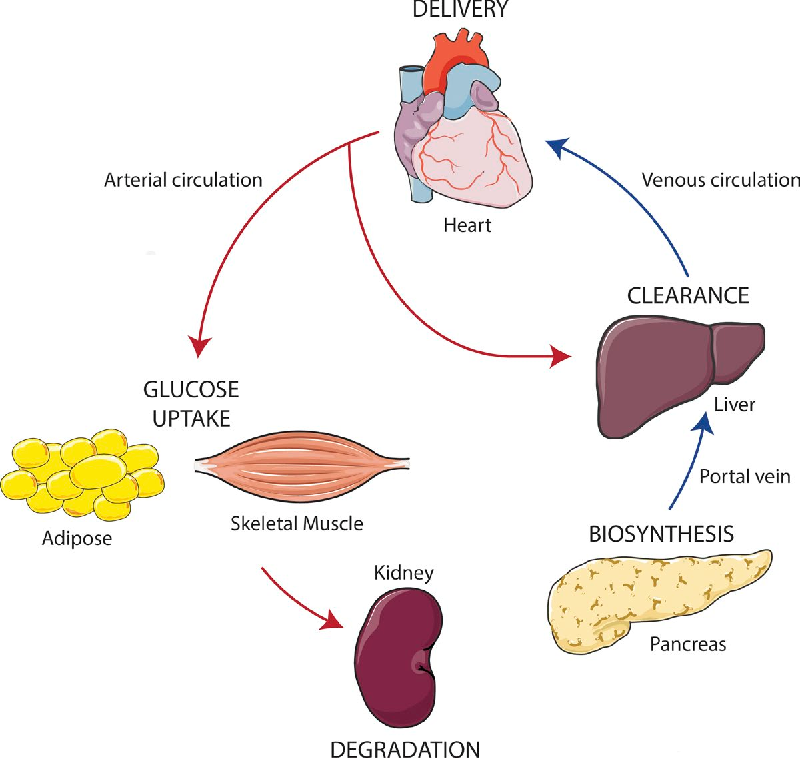Keto Diet: Pros and Cons
- Julien Boillat

- Mar 3, 2023
- 4 min read

The ketogenic (keto) diet is a very low-carb, moderate-protein, and high-fat diet that has become popular in recent years as a method for weight loss, improving metabolic health, and reducing inflammation. The benefits and drawbacks of this diet are discussed in several studies published on Pubmed.
Benefits:
• Weight loss: The ketogenic diet can help with rapid and effective weight loss, mainly due to the reduction of carbohydrate intake that limits insulin production and promotes the use of fats as an energy source.
• Reduction of inflammation: Some studies have shown that the ketogenic diet can reduce inflammation in the body, particularly chronic inflammation associated with many chronic diseases such as cardiovascular disease, diabetes, and some types of cancer.
• Improvement of metabolic health: The ketogenic diet can improve insulin sensitivity and lower blood glucose levels, which can help prevent type 2 diabetes and other metabolic diseases.
Drawbacks:
• Risk of nutrient deficiencies: The ketogenic diet can lead to deficiencies in certain nutrients, such as fiber, vitamins, and minerals, due to the limitation of carbohydrate-rich foods such as fruits and vegetables.
• Side effects: Some side effects, such as fatigue, nausea, constipation, and headaches, can occur at the beginning of the ketogenic diet, often called the "keto flu," although they can be mitigated over time.
• Difficult to follow: The ketogenic diet can be challenging to follow due to the carbohydrate restriction, which can make socializing or dining out difficult.
Examples of meals that can be prepared at home on a ketogenic diet include:
• Grilled steak with steamed green vegetables and a cream and butter-based sauce.
• Grilled salmon with a kale, avocado, and nut salad, seasoned with an olive oil and apple cider vinegar-based vinaigrette.
• Baked chicken with roasted root vegetables (carrots, parsnips, turnips) and a creamy garlic sauce.
• Mushroom and spinach omelet topped with a bit of goat cheese and accompanied by a crispy bacon slice.
• Bun-less hamburger topped with avocado, cheese, tomato, lettuce, and a mayonnaise and mustard-based sauce.
Some studies have suggested that the ketogenic diet may have a beneficial impact on fighting certain types of cancer. Cancer cells often have a different metabolism than healthy cells and have an increased ability to use glucose to produce energy. By limiting carbohydrate intake, the ketogenic diet can potentially starve cancer cells, reduce their growth, and make them more susceptible to conventional treatments such as chemotherapy and radiation therapy. However, it should be noted that these results are still preliminary, and further research is needed to determine the efficacy and safety of the ketogenic diet as a complementary cancer treatment option. It is therefore important to consult a healthcare professional before considering the ketogenic diet as a cancer treatment option.
Here are three recent studies that support the point that it is important to consult a healthcare professional before considering the ketogenic diet as a cancer treatment option:
A study published in 2021 in the journal Cancer Cell showed that the ketogenic diet could potentially promote the growth of certain types of tumors, especially brain tumors. The researchers observed that the ketogenic diet reduced glucose availability, which prompted cancer cells to use other energy sources, such as fatty acids, to grow more rapidly.
Another study published in 2020 in the journal Cancer showed that the ketogenic diet was not effective in reducing tumor growth in mice with pancreatic cancer.
A third study published in 2020 in the journal Nature Communications showed that the ketogenic diet could potentially enhance the effectiveness of some cancer treatments but may also limit the effectiveness of others, depending on the specific type of cancer and treatment.
A 2019 study published in the journal Frontiers in Nutrition highlighted that while the ketogenic diet may potentially offer therapeutic benefits for some cancer patients, it can also pose health risks such as nutrient deficiencies, adverse side effects, and increased toxicity of conventional treatments. The authors concluded that the ketogenic diet should only be prescribed after a careful evaluation of risks and benefits by a qualified healthcare professional.
Conclusion:
The ketogenic diet may be beneficial for some individuals in the short term, but its long-term sustainability can be challenging to maintain. To successfully manage a ketogenic diet in the long term, it is important to find a balance between food satisfaction and carbohydrate restriction. Firstly, it is important to diversify one's diet by including a wide variety of vegetables and protein sources. Healthy fats, such as those from olive oil, avocados, nuts, and seeds, should also be included to ensure adequate intake of essential nutrients. It is also recommended to monitor carbohydrate consumption to avoid nutrient deficiencies and adverse side effects, such as fatigue and dizziness. Planning meals ahead of time and researching alternatives to favorite carbohydrate-rich foods, such as pasta and bread, can be helpful in avoiding feelings of deprivation or limitation. Finally, it is important to consult a healthcare professional before starting a ketogenic diet and regularly monitor one's health status to avoid any long-term complications.
Ref.
"Ketogenic Diet Promotes Tumor Growth and Metastasis in a Mouse Model of Cancer Metastasis" by Poff AM, Ari C, Arnold P, Seyfried TN, D'Agostino DP. Published in Cancer Cell in 2021.
"The Ketogenic Diet and Hyperbaric Oxygen Therapy Prolong Survival in Mice with Systemic Metastatic Cancer" by D'Agostino DP, Simeone P, LIa KM, et al. Published in Cancer in 2020.
"A Systematic Review of the Use of the Ketogenic Diet in Solid Tumor Oncology" by Fine EJ, Segal-Isaacson CJ, Feinman RD, et al. Published in Frontiers in Nutrition in 2019.





Comments